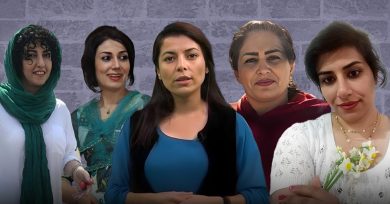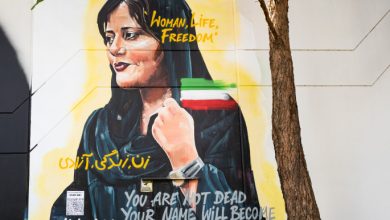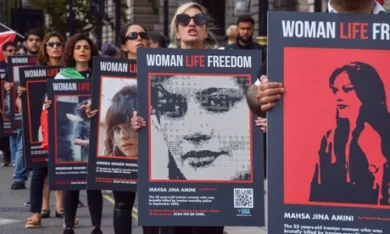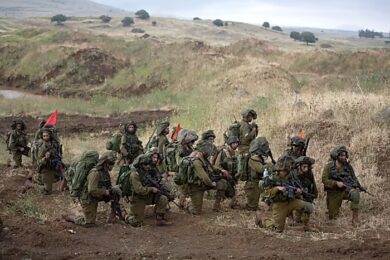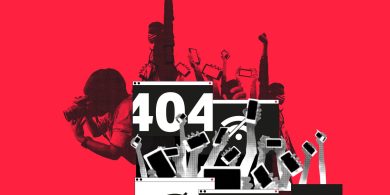The Islamic Revolutionary Guard Corps (IRGC) has grown beyond its military origins to become one of the most powerful economic players in Iran. It controls vast sectors of the economy through a complex network of front companies, military-linked businesses, and state contracts, consolidating its influence over key industries such as oil, construction, and telecommunications. Critics argue that this control has fostered widespread corruption, suppressed competition, and deepened economic inequality in Iran, all while funding the IRGC’s military operations and proxy wars.
This article examines how the IRGC’s economic empire operates, the impact of its corruption on Iran’s economy and society, and possible paths forward to address these challenges.
1. The Expansion of the IRGC’s Economic Power
After the Iran-Iraq War in the 1980s, the IRGC expanded its activities to include economic reconstruction. Over time, it entrenched itself in various sectors under the guise of national development and security needs.
A. Control of Key Industries
The IRGC’s control extends across multiple sectors:
• Oil and Gas: Through companies like Khatam al-Anbia Construction Headquarters, the IRGC has secured lucrative contracts in Iran’s energy infrastructure.
• Construction and Infrastructure: The IRGC dominates large-scale infrastructure projects, including dams, roads, and housing developments.
• Telecommunications: The IRGC exerts control over telecom networks and cyber infrastructure, aiding its surveillance efforts.
B. Influence through State Contracts
The Iranian government frequently awards no-bid contracts to IRGC-affiliated companies, bypassing competitive bidding processes. This allows the IRGC to enrich itself while stifling private sector growth.
2. Corruption Within the IRGC’s Economic Empire
The IRGC’s control of the economy has fostered systemic corruption, undermining Iran’s economic stability and transparency.
A. Embezzlement and Fraud
• Reports have documented large-scale embezzlement by IRGC officials, involving billions of dollars in misappropriated state funds.
• Corrupt IRGC-linked businesses exploit monopolistic control, inflating project costs and delivering substandard infrastructure.
B. Illegal Smuggling Networks
The IRGC operates smuggling networks to bypass international sanctions, particularly in oil exports and military equipment.
• These networks deprive the government of tax revenue while enriching IRGC elites.
• Smuggling operations often involve trafficking routes through Iraq, Afghanistan, and the Persian Gulf.
C. Impact on Domestic Businesses
The IRGC’s dominance discourages entrepreneurship and private investment. Iranian business owners face intimidation and unfair competition, with many forced to cooperate with IRGC-affiliated entities to survive.
3. Funding Repression and Military Activities
The profits from the IRGC’s economic ventures are not reinvested to benefit Iran’s civilian population. Instead, they fund:
A. Military Operations
• The IRGC finances proxy wars and militant groups in Syria, Iraq, Lebanon, and Yemen.
• These operations destabilize the region and drain Iran’s economic resources.
B. Domestic Repression
• Economic resources are diverted to support internal security forces that suppress protests and dissent.
• Activists, journalists, and minority groups face arrests, surveillance, and torture, funded by the IRGC’s revenue streams.
4. The Impact on Iran’s Economy and Society
The IRGC’s economic empire has contributed to Iran’s economic stagnation, inequality, and public discontent.
A. Economic Decline and Inflation
• The IRGC’s control of key industries has led to mismanagement and inefficiency, exacerbating Iran’s economic crisis.
• Inflation and currency devaluation have made basic goods unaffordable for many Iranians.
B. Widening Wealth Gap
• While IRGC officials and their allies amass wealth, ordinary Iranians face job insecurity, poverty, and declining living standards
• The lack of transparency and accountability fuels public resentment against both the IRGC and the government.
C. Brain Drain and Emigration
• Many skilled professionals and entrepreneurs leave Iran due to economic instability and political repression.
• This brain drain further weakens Iran’s economy and innovation potential.
5. International Sanctions and Their Effectiveness
The international community has imposed sanctions targeting the IRGC’s economic operations, aiming to curb its military ambitions and human rights abuses.
A. Positive Impact of Sanctions
• Sanctions have disrupted the IRGC’s access to international banking and trade networks, limiting its ability to fund proxy groups.
• The exposure of front companies has reduced opportunities for money laundering and illegal trade.
B. Unintended Consequences
• Sanctions have also worsened economic conditions for ordinary Iranians, leading to shortages of essential goods.
• The IRGC has adapted by expanding smuggling operations and consolidating control over domestic markets.
6. Reforming Iran’s Economy: Possible Solutions
Addressing the IRGC’s economic stranglehold requires both internal reform and international pressure.
A. Strengthening Transparency and Accountability
• Anti-corruption initiatives should target IRGC-affiliated businesses and state contracts.
• Independent oversight bodies are needed to monitor public spending and economic activities.
B. Supporting Civil Society
• Empowering civil society organizations, independent media, and activist networks can expose corruption and promote economic reform.
• International donors can provide technical assistance and funding for anti-corruption programs.
C. Reducing the IRGC’s Influence
• Iranian policymakers must reduce the IRGC’s control over strategic industries and promote free-market competition.
• Reintegrating Iran into the global economy through diplomatic engagement could reduce the regime’s reliance on the IRGC.
7. The Role of Global Solidarity
The international community can play a key role in supporting economic justice and human rights in Iran by:
• Expanding targeted sanctions on IRGC leaders and entities involved in corruption.
• Providing economic incentives for reforms that promote transparency and accountability.
• Supporting whistleblowers and investigative journalists who expose the IRGC’s illegal activities.
Conclusion
The IRGC’s economic empire is a pillar of corruption, repression, and instability in Iran. Its monopolistic control of key industries undermines economic growth, human rights, and regional stability. Addressing this challenge requires a combination of internal reforms, targeted international sanctions, and support for Iranian civil society. By holding the IRGC accountable, the world can help pave the way for a more prosperous and just future for the Iranian people.
Join Our Newsletter!
Stay informed with the latest updates, news, and ways to take action in the fight for justice and global security. Sign up now to get updates delivered straight to your inbox!

